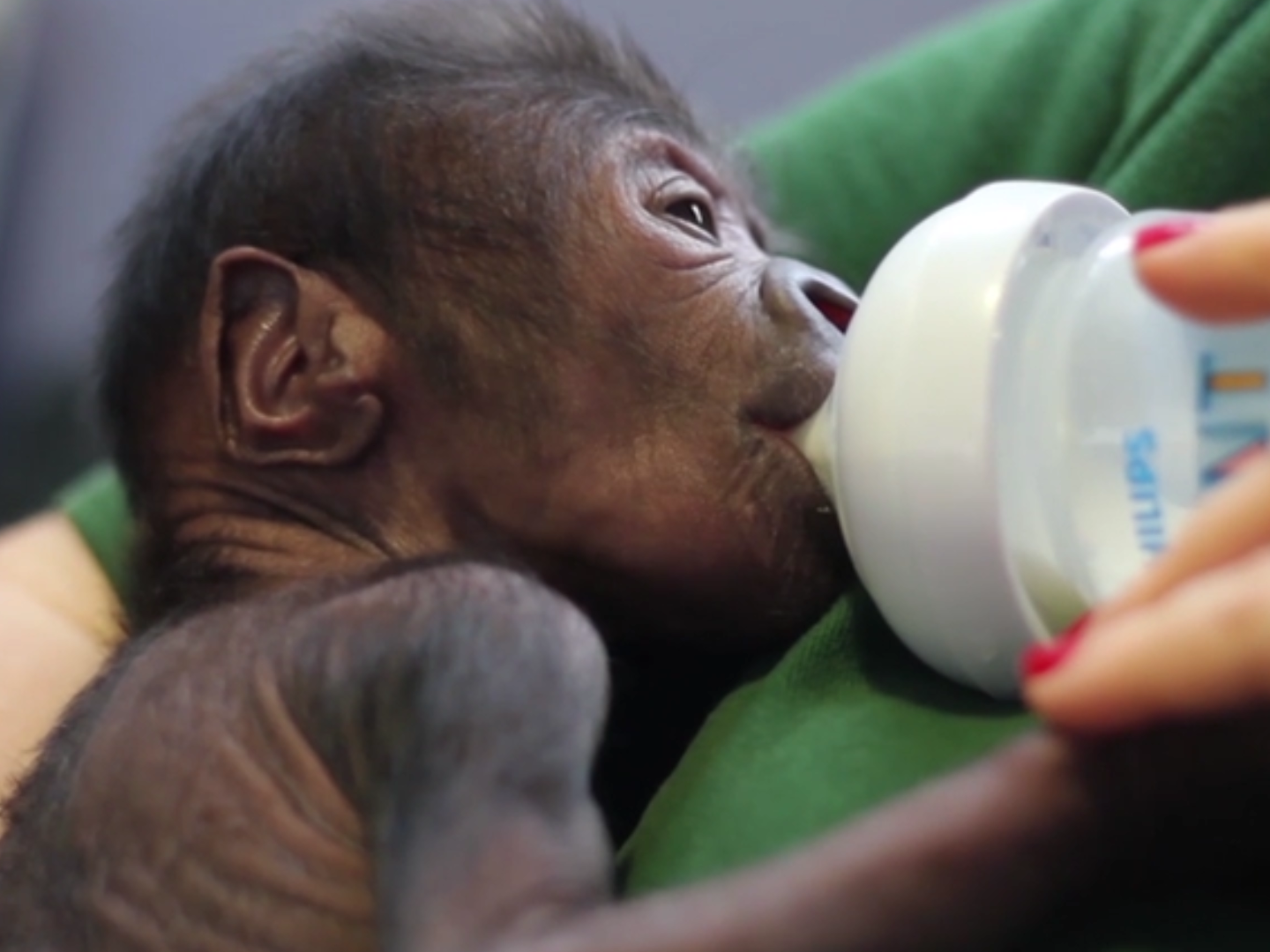Baby gorilla born after ‘extraordinary’ C-section
The 11-day-old baby, which is yet to be named, was born at Bristol Zoo Gardens weighing just over a kilo (2lbs 10oz)
A baby gorilla has been born at a British zoo after a very rare and ‘extraordinary’ emergency caesarean.
The western lowland gorilla, a girl, was delivered after her mother showed symptoms of potentially life-threatening pre-eclampsia.
Despite needing help from vets at first to breathe independently, she is now reportedly doing well and is being hand-reared by a small team of experienced keepers at Bristol Zoo.
The baby's mother, named Kera, is recovering and being monitored closely by the veterinary team.
It is the first time a gorilla has been born by caesarean at Bristol Zoo and one of very few instances worldwide.
John Partridge, senior curator of animals, said the baby gorilla’s operation was not an easy decision.
"The birth of any gorilla is a rare and exciting event but the birth of a baby gorilla by caesarean section is even more unusual," he said.

"It wasn't a decision that we took lightly – the mother was becoming quite poorly and we needed to act fast in order to give the best possible treatment to mother and baby and to avoid the possibility of losing the baby."
Despite having delivered hundreds of babies by caesarean in his career, this was the first time Professor David Cahill had delivered a baby gorilla by this procedure.
"Along with having my own children, this is probably one of the biggest achievements of my life and something I will certainly never forget,” Professor Cahill said.
"I have since been back to visit Kera and the baby gorilla, it was wonderful to see them both doing so well."
Lynsey Bugg, Bristol Zoo's Assistant Curator of Mammals, is one of a small team of keepers providing round the clock care for the infant.
"The first few days were critical for the baby, it was vital that she was kept warm and began taking small amounts of formula milk,” she said.
"We started 'skin-to-skin' contact - a process used with human newborn babies - and she responded well to this and is getting stronger and more alert each day."
Additional reporting by Press Asoociation
Join our commenting forum
Join thought-provoking conversations, follow other Independent readers and see their replies
Comments
Bookmark popover
Removed from bookmarks